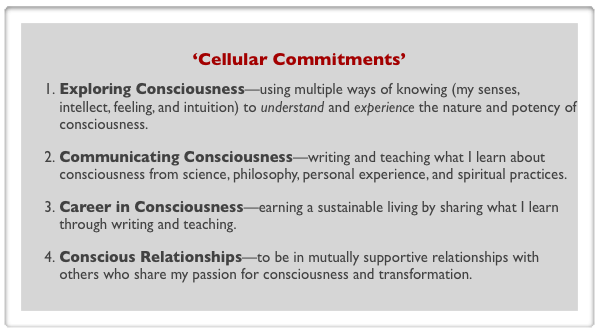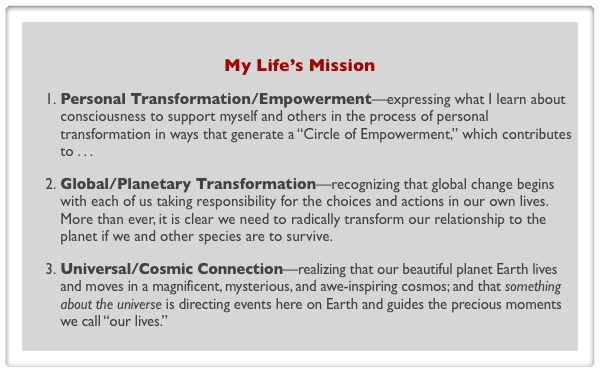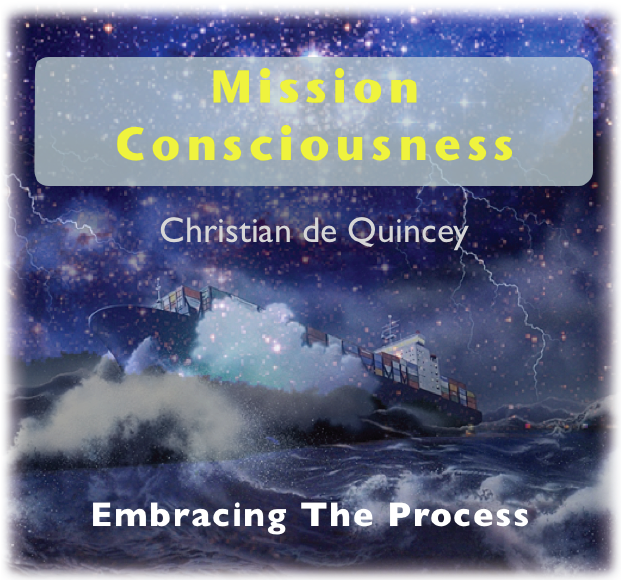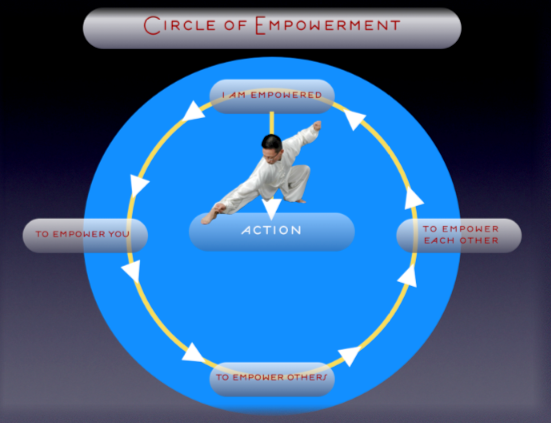Mission: Consciousness
First, the formal stuff: a brief summary of my credentials—what I do.
Then, what I’m really up to in life and work—who I am.
I serve as a Professor of Philosophy and Consciousness Studies at John F. Kennedy University; Dean of Consciousness Studies at the University of Philosophical Research; adjunct faculty with Wisdom University; and founder of The Wisdom Academy, offering private mentorships in consciousness. I am also author of the award-winning book Radical Nature: The Soul of Matter and Radical Knowing: Understanding Consciousness through Relationship. My latest books are Consciousness from Zombies to Angels and Deep Spirit: Cracking the Noetic Code. Samples of my writings on consciousness and cosmology are available at TheWisdomBlog.
Times change. Circumstances sweep us along. And yet we always have the power of choice. Nevertheless, sometimes it seems no matter what we intend, choose, or do, greater forces are at work directing the unfolding of our lives. Gravity? The laws of physics? Genes or memes? Secret cabals? Divine purpose? Planetary alignment? The law of attraction? . . . who knows?
Something beyond our control pushes us along a path not always of our own choosing, and, it seems, the best we can do is enjoy the ride. Come what may, we are always, and inevitably, part of The Process.
Some time ago, I found myself in the middle of The Process, and decided to recalibrate my mission, my life’s purpose. I called the result my “cellular commitments”—what I discovered about myself, my natural essence or “soul’s calling.” These four core drives or purposes have guided my life for as long as I can remember:
Next, I clarified my “Life’s Mission” — a three-tiered process for applying my“cellular commitments”:
Although my formal academic training is in philosophy (specifically, philosophy of mind), I have always championed an interdisciplinary approach to consciousness—my studies and writings have covered, for example, neuroscience, cognitive science, anthropology, history and philosophy of science, history of philosophy, quantum physics, cosmology, theology, as well as Eastern and Western spiritual traditions. Using my background in journalism, I specialize in communicating profound and complex ideas in accessible language without compromising the integrity of robust scholarship.
My books explore the deep assumptions we hold about consciousness, collectively and individually. Exposing and engaging with our often unquestioned belief systems is not only central to an y comprehensive and effective program in consciousness studies, it is essential for transformation at the personal and societal level. Perhaps more than ever before in human history, we critically need to develop tools and skills to acce
y comprehensive and effective program in consciousness studies, it is essential for transformation at the personal and societal level. Perhaps more than ever before in human history, we critically need to develop tools and skills to acce
lerate transformation of our fundamental world views (one of the required courses I teach at John F. Kennedy University, “Paradigms of Consciousness,” is designed explicitly to address this issue).
It seems clear to me that unless we (as a global society) engage in this deep work, we are unlikely to create the kinds of solutions needed to sustain our communities and civilization through the current century. Business as usual is no longer an option. We have reached a point in the evolution of our species where, it appears, we either make a profound shift in personal and collective consciousness or face the prospect of wide-ranging and increasingly complex crises that threaten the well being (perhaps even the survival) of our social, economic, political, educational, and ecological systems.
One way to help bring about this kind of change is to proactively build into our educational institutions new ways of thinking, understanding, and relating to ourselves, our communities, and our world. Based on rigorous interdisciplinary academic and extramural research, we can offer a portfolio of practices for “Consciousness and Transformation” designed to inform and inspire leaders in business, government, and media to embrace new possibilities and option—through creative application of our greatest gift: consciousness itself.




